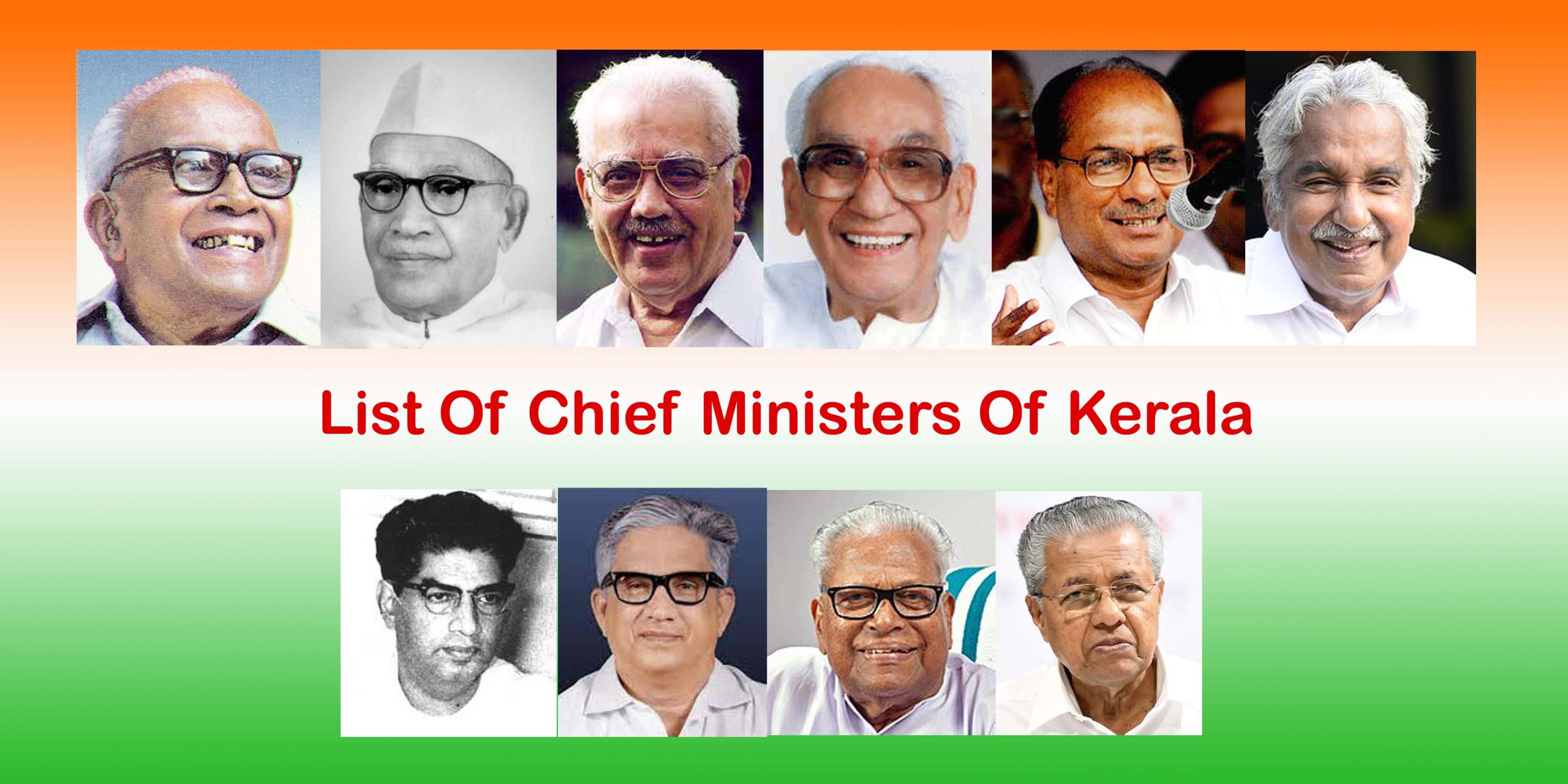
Chief Ministers of Kerala Since Independence
Kerala, famous for its beautiful landscapes, high literacy, and vital healthcare, has grown a lot thanks to the energetic leadership of its Chief Ministers. Several influential leaders have steered Kerala, significantly impacting and driving the state through difficult periods toward brighter futures. In A Journey of Chief Ministers of Kerala Since Independence, what has each Chief Minister done, and how have they helped Kerala grow and change? This list of Chief Ministers has taken turns guiding Kerala through ups and downs. And making big moves to help it develop, face tough times, and evolve.
Chief Ministers of Kerala Since Independence, blog will examine these leaders more closely, discussing the major projects they undertook, the obstacles they encountered, and their lasting impacts on the state. Let’s dive into the stories of these remarkable leaders and see how they’ve helped shape Kerala into what it is today.
A Journey Through Leadership: Chief Ministers of Kerala Since 1957
E. M. S. Namboodiripad (1957-1959, 1967-1969)
E.M.S. Namboodiripad was vital in guiding Kerala’s path after it became independent. As the first Chief Minister of Kerala, he guided Kerala through significant political and social changes. He was at the helm of the world’s first democratically elected communist government, laying the groundwork for Kerala to become a shining example of development and fairness for everyone.
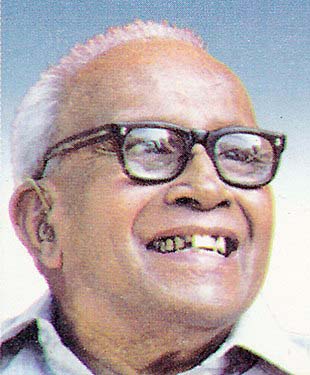
Key Contributions:
- Land Reforms: E.M.S. Namboodiripad implemented significant land reforms, distributing land to the landless and revising tenancy regulations. These actions substantially reduced rural poverty and addressed the longstanding injustices faced by farmworkers.
- Educational Reforms: He concentrated on education, making primary school accessible to all and laying the groundwork for Kerala’s renowned education system, which resulted in one of India’s highest literacy rates.
- Public Health Initiatives: He launched public health campaigns and expanded healthcare facilities, boosting Kerala’s life expectancy and reducing infant mortality rates. This effort set a high standard for public health in the region.
Challenges:
- Dealing with Political Opposition: E.M.S. Namboodiripad went through tough opposition and shaky politics, even seeing his government dismissed in 1959 after the ‘Liberation Struggle’ by a group of non-communist parties.
- Overcoming Economic Limits: He tackled economic hurdles in Kerala, a place not significantly developed industrially, by concentrating on farming and starting policies for industries even when resources were scarce.
- Facing Social Pushback: He met with pushback against his reforms in land and education from those who were set in their ways, working through Kerala’s complicated social scene to put his forward-thinking policies in place.
Legacy: E.M.S. Namboodiripad’s legacy is deep and lasting, marking him as a visionary leader who charted Kerala’s developmental course. His leadership is famed for promoting fair land distribution, achieving high literacy rates, and setting high standards in public health. His changes made a difference, playing a big part in making Kerala’s growth and social measures stand out, even compared to many wealthy countries.
P. A. Thanu Pillai (1960-1962)
P.A. Thanu Pillai took over as Kerala’s Chief Minister, which was a critical period for setting up its organizational framework. He led Kerala as it was figuring out how to be a new state, working to set up a solid system for running the government and handling the mix of political and social issues that came with it.
Key Contributions:
- Improving Administration: Thanu Pillai put much effort into strengthening Kerala’s administration, ensuring it worked efficiently and responded well to what the people needed.
- Building Infrastructure: He concentrated on improving infrastructure, like making more roads and public services better, to meet the state’s increasing needs and prepare for economic growth.
- Boosting Education and Health: He prioritized giving more chances for education and improving health facilities, understanding how crucial they are for the state’s development and the well-being of its people.
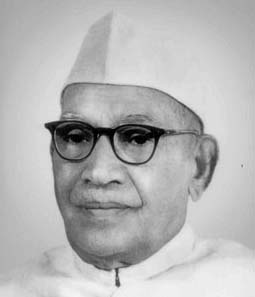
Challenges:
- Keeping Politics Stable: Thanu Pillai handled the tough job of maintaining stable politics in Kerala, which is known for its lively and varied political scene.
- Boosting the Economy: He tackled the challenge of driving economic growth in Kerala, a state not heavily industrialized, by concentrating on farming and small businesses as primary areas for development.
- Bringing Communities Together: He aimed to bring different communities in Kerala closer, working to reduce social gaps and encourage togetherness among its diverse people.
Legacy: People celebrate P.A. Thanu Pillai’s tenure as Chief Minister for establishing a solid foundation for Kerala’s administration and governance. Despite his short time in office, his efforts in developing infrastructure, enhancing education, and advancing public health played a vital role in positioning Kerala as a prime example of effective governance and social welfare. His leadership created pathways for future development and set a clear direction for the state’s progress.
R. Sankar (1962-1964)
R. Sankar assumed the role of Chief Minister of Kerala during a transformative period in the state’s history. His leadership was pivotal in furthering the state’s development and addressing its social and economic challenges. After the initial years of Kerala’s formation, Sankar’s tenure was crucial in steering the state towards progress and modernization.
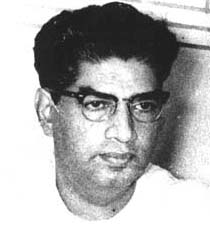
Key Contributions:
- Boosting Education: Sankar, passionate about education, worked hard to increase educational opportunities and raise the quality of education throughout Kerala, helping the state achieve its high literacy rates.
- Improving Healthcare: He prioritized healthcare, making medical services available everywhere in the state, especially in rural areas, aiming for better health for everyone.
- Supporting Agriculture: Knowing how crucial farming was to Kerala’s economy, Sankar launched policies to enhance agricultural output and assist farmers.
Challenges:
- Dealing with Political Opposition: Sankar encountered significant opposition and hurdles, some even coming from within his party, affecting his leadership’s stability. These internal and external challenges influenced how effectively he could implement his policies.
- Overcoming Economic Limits: He tackled the big job of boosting the economy in Kerala, a state not known for its industrial setup, by concentrating on farming and small businesses for economic growth.
- Achieving Social Harmony: Working towards bringing Kerala’s varied communities together and ensuring equal access to education and healthcare was a significant challenge for him, especially in reaching different social levels.
Legacy: R. Sankar, as Chief Minister, significantly boosted education and healthcare, laying the groundwork for Kerala’s achievements in these fields. Despite political and economic obstacles, his efforts to enhance agriculture and launch social welfare initiatives deeply and permanently improved Kerala’s journey towards excellence in literacy, healthcare, and community cohesion. People celebrate his tenure for advancing Kerala inclusively, benefiting the entire state.
C. Achutha Menon (1969-1970, 1970-1977)
In a Journey of Chief Ministers of Kerala Since Independence, C. Achutha Menon’s leadership role was crucial to Kerala’s growth story. Taking charge during a period filled with political turmoil and economic difficulties, his leadership stood out for its firm dedication to pushing the state forward. Known for his practical and visionary style, Menon was crucial in guiding Kerala through an essential part of its history.
Key Contributions:
- Boosting the Economy and Industry: Menon put Kerala’s economic growth at the top of his agenda, using industrialization to create jobs and bring stability. He launched various industrial projects and policies to move Kerala’s economy away from farming.
- Reforming Agriculture: He brought significant changes to farming to boost output and help rural folks make a better living. These changes included giving out land to those without and starting cooperative agriculture.
- Improving Education and Healthcare: Menon strengthened Kerala’s education and health sectors, maintaining the state’s high literacy and public health standards. He worked to ensure that everyone could get schooling and medical care.
- Building Better Infrastructure: He upgraded Kerala’s infrastructure, working on roads, bridges, and public services to improve travel and living conditions for everyone in the state.
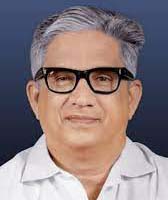
Challenges:
- Dealing with Economic Limits: Menon tackled the tough job of growing Kerala’s economy with few resources and a global oil crisis hitting the state’s wallet hard.
- Keeping Politics Stable: He held the political scene steady despite the tricky world of coalition politics and many changes in who was in charge.
- Improving Social Fairness: Menon focused on reducing the gaps between different social and economic groups in the state, ensuring Kerala’s growth benefited everyone somewhat.
Legacy: C. Achutha Menon, as Chief Minister, significantly influenced Kerala’s economy and society and is remembered well for his impact. His practical leadership and growth strategy and a strong commitment to social welfare laid a solid foundation for Kerala’s future achievements. During a significant change in Kerala’s history, Menon’s leadership left a lasting impact, establishing him as a visionary leader who profoundly shaped the state’s direction.
K. Karunakaran (1977, 1981-1982, 1982-1987, 1991-1995)
K. Karunakaran’s time in Kerala’s politics stood out for his energetic leadership at critical state growth points. As Chief Minister of Kerala Since Independence, his tenure saw significant advances in politics, the economy, and society. Famous for his sharp political insight and strong management abilities, Karunakaran was essential in guiding Kerala towards its modern development path.
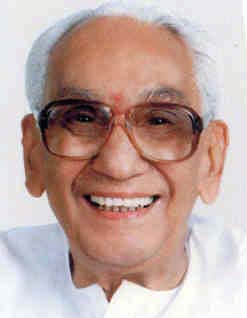
Key Contributions:
- Boosting Industry and the Economy: Karunakaran was crucial in pushing for more industrial activity and making Kerala’s economy more diverse. He kicked off important industrial projects to help the state grow economically and to open up new job opportunities.
- Improving Infrastructure: He put a lot of emphasis on building better infrastructure and took charge of constructing and upgrading roads, bridges, and public buildings, which significantly enhanced the connection and convenience of the state.
- Starting Welfare Programs: Karunakaran introduced several welfare programs focusing on health, education, and helping those less fortunate, aiming to lessen social gaps and make life better for people in Kerala.
- Handling Emergencies: He showed strong leadership during natural disasters and political troubles, developing practical plans to manage crises and keep the state stable.
Challenges:
- Dealing with Political Issues: Karunakaran navigated several political issues and controversies that tested his leadership and policy-making.
- Overcoming Economic Hurdles: He tackled economic challenges, such as handling the state’s budget and balancing development ambitions and wise spending.
- Keeping Peace Among Communities: Karunakaran tried to maintain peace in a state rich with different religions and cultures, working through communal tensions and pushing for policies that included everyone.
Legacy: K. Karunakaran stands out as a Chief Minister for playing a significant role in Kerala’s development and modernization. Through his progressive leadership, he significantly contributed to infrastructure development, industrial enhancement, and social welfare improvements, leaving a durable impact on the state’s growth. Despite encountering political and economic obstacles, his tenure established a robust foundation for Kerala’s future development, securing his position as one of the state’s pivotal political figures.
E. K. Nayanar (1980-1981, 1987-1991, 1996-2001)
E.K. Nayanar’s time as a leader in Kerala stood out for his dedication to fairness and growing the economy. He led the state through significant changes, focusing on helping those often left out and building a community that included everyone. His way of running things mixed practical and forward-looking plans to improve how people lived and worked in the state.
Key Contributions:
- Improving Farming and Land Ownership: Nayanar implemented significant reforms in farming and land ownership, distributing land to the landless and aiding farmers in enhancing their practices. These measures were crucial in reducing rural poverty.
- Boosting Industry: He worked to grow Kerala’s industries, supporting big government-run businesses and smaller companies to create jobs and move the economy.
- Starting Welfare Programs: Nayanar kicked off a lot of programs to make healthcare, education, and social security better, paying extra attention to the needs of workers and people who had it tough.
- Upgrading Infrastructure: He put money into building better roads, utilities, and other vital structures to make life better in Kerala and prepare for long-term growth.
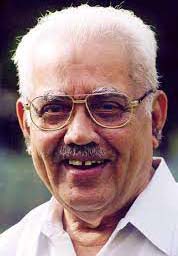
Challenges:
- Handling the Economy: Nayanar dealt with the tough job of keeping Kerala’s economy stable during ups and downs in national policies and global conditions, trying to keep the budget in check while pushing for growth.
- Dealing with Political Challenges: He navigated through times of political pushback and handled the complexities of coalition politics in a state famous for its strong democracy and active political scene.
- Keeping the Peace: Nayanar worked hard to maintain peace in a diverse Kerala, tackling issues between communities and ensuring everyone benefited from the state’s progress.
Legacy: E.K. Nayanar, as Chief Minister, showed a true dedication to social fairness and economic growth. He achieved significant progress in land reform, industrial expansion, and enhancing welfare programs, which helped elevate Kerala’s status as a state with high living standards. Despite encountering tough economic and political challenges, Nayanar’s leadership significantly influenced Kerala’s growth path, demonstrating his vision for a progressive and inclusive community.
A. K. Antony (1995-1996, 2001-2004)
A.K. Antony’s time as Chief Minister of Kerala stood out for his commitment to careful spending and improving government work. As Chief Minister of Kerala Since Independence, he took charge when significant changes were needed. Their aiming to make the government more efficient and to push for policies that would lead to lasting improvement. Known for being honest and straightforward, Antony was pivotal in bringing about political and social changes in Kerala.
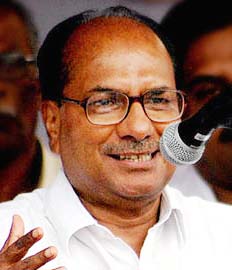
Key Contributions:
- Managing Finances Wisely: Antony focused on being financially responsible, cutting down on government spending and getting better at managing money to help Kerala’s economy stay stable.
- Improving Education: He worked on strengthening the education system, enhancing both the quality of teaching and the school buildings to help build a society that values knowledge.
- Boosting Healthcare: Antony started programs to make public health services better, aiming to ensure everyone in Kerala, especially those less fortunate, could get medical care quickly and affordably.
- Making Government More Open: He pushed for a more open government, bringing changes to cut down on corruption and make public services work better and faster.
Challenges:
- Handling Economic Limits: Antony steered Kerala’s growth plans while dealing with tight budgets and trying to meet development goals with the resources at hand.
- Overcoming Political Hurdles: He manoeuvred through tricky political situations, dealing with the challenges of coalition politics and working to get different political groups to agree.
- Supporting Social Welfare: He tackled the tough job of rolling out social welfare programs without overspending, ensuring that cuts didn’t hurt the less fortunate parts of the community.
Legacy: A.K. Antony’s tenure as Chief Minister is notable for his efforts to improve Kerala’s financial and administrative practices. People remember him for wisely managing the state’s finances. Also dedicating himself to enhancing education and healthcare and upholding integrity in public office. In addition, facing the challenge of fostering development with limited funds. Antony’s leadership established a solid base for Kerala’s progress toward sustainable and equitable growth, demonstrating the critical role of governance reforms in achieving significant development milestones.
Oommen Chandy (2004-2006, 2011-2016)
Oommen Chandy’s time as a leader in Kerala is known for its energetic leadership and big push towards growth and modernization. He was in charge when Kerala was figuring out how to deal with both old problems and new challenges of the 21st century. Known for being very involved and easy for people to reach, Chandy guided Kerala through significant social and economic improvements.
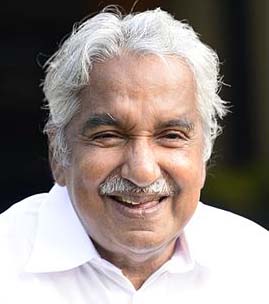
Key Contributions:
- Building and Modernizing Infrastructure: Chandy put a lot of effort into upgrading infrastructure, starting projects to make roads better, improve public transport, and enhance city facilities, all to make life better across Kerala, in cities and the countryside alike.
- Boosting I.T. and Making Government Digital: He pushed Kerala’s I.T. field forward and started digital government projects, making it easier for people to get government services and support an economy based on knowledge and information.
- Improving Health and Education: Chandy made Kerala’s health and education services even stronger, ensuring they were easy to access, high in quality, and open to everyone, adding to Kerala’s already impressive achievements in these areas.
- Encouraging Economic Growth: He backed efforts to grow the economy by supporting people starting businesses, boosting tourism, and promoting trade, all aimed at creating more jobs and driving economic progress.
Challenges:
- Dealing with Political Challenges and Coalition Politics: Chandy handled the complex world of running a coalition government and dealt with political opposition that sometimes made it hard to implement policies and keep the government stable.
- Making the Economy More Varied: He worked on making Kerala’s economy more diverse, trying to rely less on traditional industries and money sent home from abroad by encouraging growth in tech and service industries.
- Keeping Development Eco-friendly: Chandy navigated the demands for new projects and environmental conservation, solving problems to ensure nature’s safety while cities expanded and infrastructure developed.
Legacy: As a Chief Ministers of Kerala Since Independence, Oommen Chandy stands out actively pursued improvements and significantly impacted lives throughout Kerala. He substantially improved infrastructure, I.T. development, healthcare, and education, positioning Kerala as a growth and effective governance benchmark. Despite political and economic hurdles, Chandy’s leadership heralded a progressive transformation in Kerala, focusing on modernization while ensuring fairness and inclusion for all.
V. S. Achuthanandan (2006-2011)
V.S. Achuthanandan’s time as Chief Minister was a game-changer for Kerala. With a background in political activism and being known for his honesty, he zeroed in on the state’s significant issues, firmly pushing for fairness and caring for the Environment. He led Kerala when the goal was to grow without harming nature or leaving anyone behind.
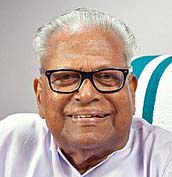
Key Contributions:
- Improving Land Ownership and Housing: Achuthanandan led the charge on land reforms and creating housing options, ensuring people without much had a place to call home. His efforts were about cutting down on homelessness and ensuring everyone had a piece of land.
- Protecting the Environment: He stood firm on keeping Kerala’s Environment safe, putting rules in place to look after the state’s natural beauty and wildlife, fighting against illegal land grabs, and cutting down forests.
- Fighting Corruption: Achuthanandan pushed for a government you could trust, starting probes into dodgy dealings and making the government’s work more open and answerable to the people.
- Boosting Health and Education: He kept improving Kerala’s health services and schools, focusing on high quality and ensuring everyone could reach them, adding to the state’s exemplary record.
Challenges:
- Dealing with Political Pushback: Achuthanandan ran into resistance both from his party members and other political rivals, which occasionally slowed down his plans and efforts to govern.
- Balancing Growth with Nature: He tackled the tough job of boosting the economy without hurting Kerala’s natural Environment, trying to keep everything in balance in a state famous for its varied ecosystems.
- Supporting the Elderly and Expanding Welfare: He looked after an ageing population and grew the state’s welfare programs, ensuring the development benefits reached everyone far and wide.
Legacy: As a Chief Ministers of Kerala Since Independence, V.S. Achuthanandan’s unwavering commitment to social justice, protecting the Environment, and tackling corruption. People remember him for his significant work on land reform, improving housing, and protecting Kerala’s natural surroundings. Even amid political obstacles, his leadership shone through. He was dedicated to fairness and caring for the earth, making a deep and enduring mark on Kerala’s development.
Pinarayi Vijayan (2016-2021, 2021-Present)
Pinarayi Vijayan took charge when Kerala was ready to enter a new era of growth and modernization. Known for his strong leadership and clear plan to make Kerala a shining example of sustainable and fair development, Vijayan came from a solid background in grassroots political activism. He brought a deep knowledge of Kerala’s social and political life and a dedication to tackling the state’s current challenges.
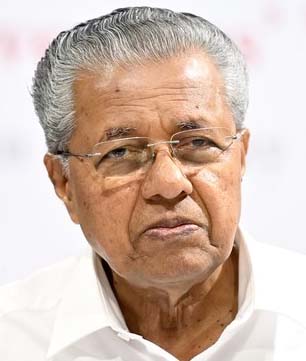
Key Contributions:
- Building Infrastructure and Using Technology: Vijayan has prioritized building infrastructure and new technology to boost the economy and improve government services. He’s focused on digital systems and innovative projects to modernize the state.
- Improving Social Welfare and Making Sure It’s Fair: He’s started and grown programs to help people and ensuring everyone gets to share in the state’s success.
- Boosting Health and Education: Vijayan enhanced Kerala’s healthcare and education systems, maintaining the state’s reputation for excellent public services. His leadership was solid during health crises like the Nipah virus outbreak and the COVID-19 pandemic.
- Keeping the Environment Safe: He’s emphasized keeping nature safe and ensuring development is green, with policies that look after Kerala’s beautiful natural spots and support growth that doesn’t harm the planet.
Challenges:
- Handling Natural Disasters: Vijayan guided Kerala through several natural disasters, like big floods and the COVID-19 pandemic, showing strong leadership and excellent crisis handling.
- Making the Economy More Varied: He tackled making Kerala’s economy more diverse, shifting focus to areas like tech and services while keeping traditional areas like farming and fishing green and sustainable.
- Keeping Peace and Unity: Vijayan navigated Kerala’s complicated political scene and worked hard to maintain peace among its diverse religions and cultures, emphasizing fairness and open conversation.
Legacy: As a Chief Ministers of Kerala Since Independence, Pinarayi Vijayan focused on modernizing Kerala with upgraded infrastructure, technological progress, and a strong push for social welfare. He has led courageously through difficult times, with his commitment to health, education, and environmental sustainability driving Kerala towards becoming a more progressive and resilient state.
Conclusion:
Since independence, the Chief Ministers of Kerala have been extremely important in improving the state. Each leader had their ideas and plans to meet the various needs of the people of Kerala. He worked on many things, such as ensuring people owned land, improving education, and building better roads and technology.
All his efforts have made Kerala a great place with lots of progress. But the journey does not end here. In the future, new Chief Ministers will have challenges and possibilities to improve Kerala. They will work hard to help the state move forward, make it more prosperous and take care of the well-being of its people. The future of Kerala looks bright!
On Postswirl blogging site, Chief Ministers of Kerala Since Independence, take a closer look at their achievements: the hurdles they faced and the difference they have made in bringing the state forward.





One thought on “A Journey Of Chief Ministers of Kerala Since Independence”